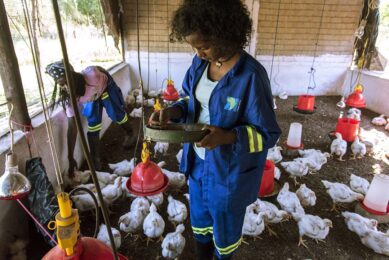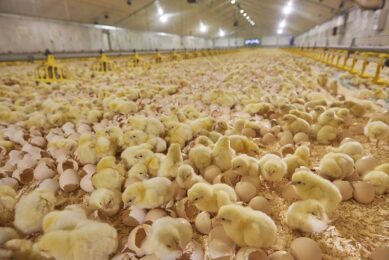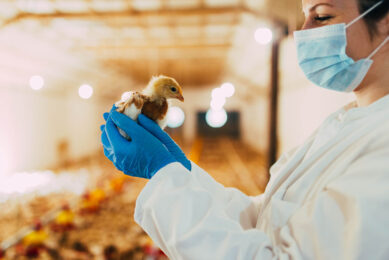Research: Selection for quick growth leads to animal disease
Livestock animals have been selected for growing rapidly, but this will be at the expense of natural immunity against diseases, Dutch researchers say.
Ecophysiologists from Groningen University, the Netherlands, have published an article in the scientific journal Functional Ecology that without knowing it, the animal husbandry industry has contributed to animal disease outbreaks and the demand to antibiotics.
Researcher Prof Simon Verhulst said, “In the intensive livestock industry, diseases form a big problem, just like the need to often treat the animals with antibiotics.”
He continued, “The massive use of antibiotics will create resistant antibiotics, which makes it severely more difficult to treat people, who suffer from the same pathogens.”
Poultry
The researchers made a survey of measuring the immune system among poultry that had been selected for growth for several generations. Virtually without any exception, it was shown that the selection for rapid growth went at the expense of the immune system’s efficacy.
It is thought that an adjusted breeding programme it is possible to increase the animals’ immunity. Experimental selection for a more active immune system did not go at the expense of animal growth.
The research was also carried out by Peter J. van der Most, Berber de Jong and Henk K. Parmentier. A summary can be read here.
Related websites:
Groningen University
Functional Ecology
Join 31,000+ subscribers
Subscribe to our newsletter to stay updated about all the need-to-know content in the poultry sector, three times a week. Beheer
Beheer








 WP Admin
WP Admin  Bewerk bericht
Bewerk bericht